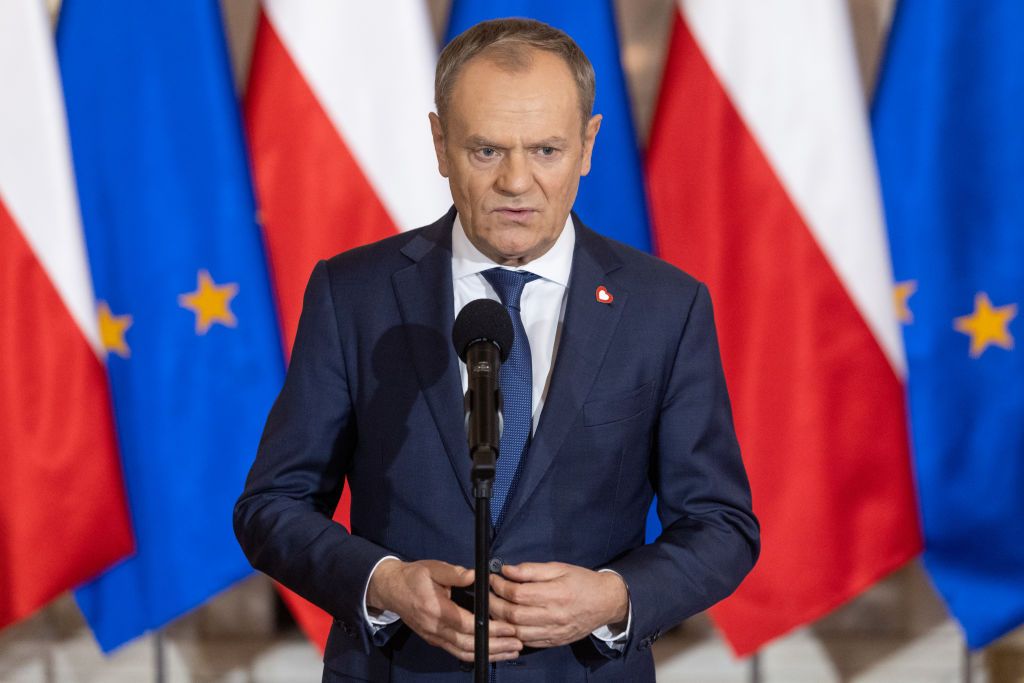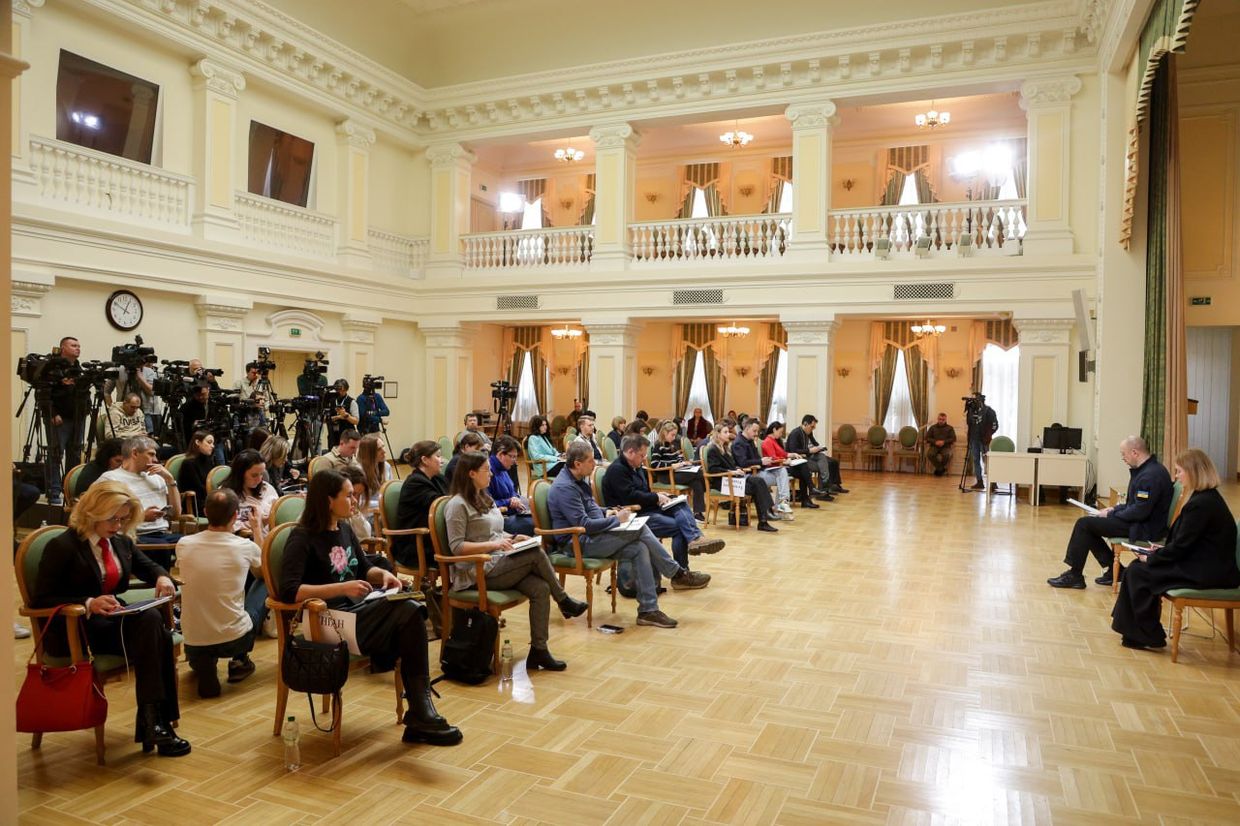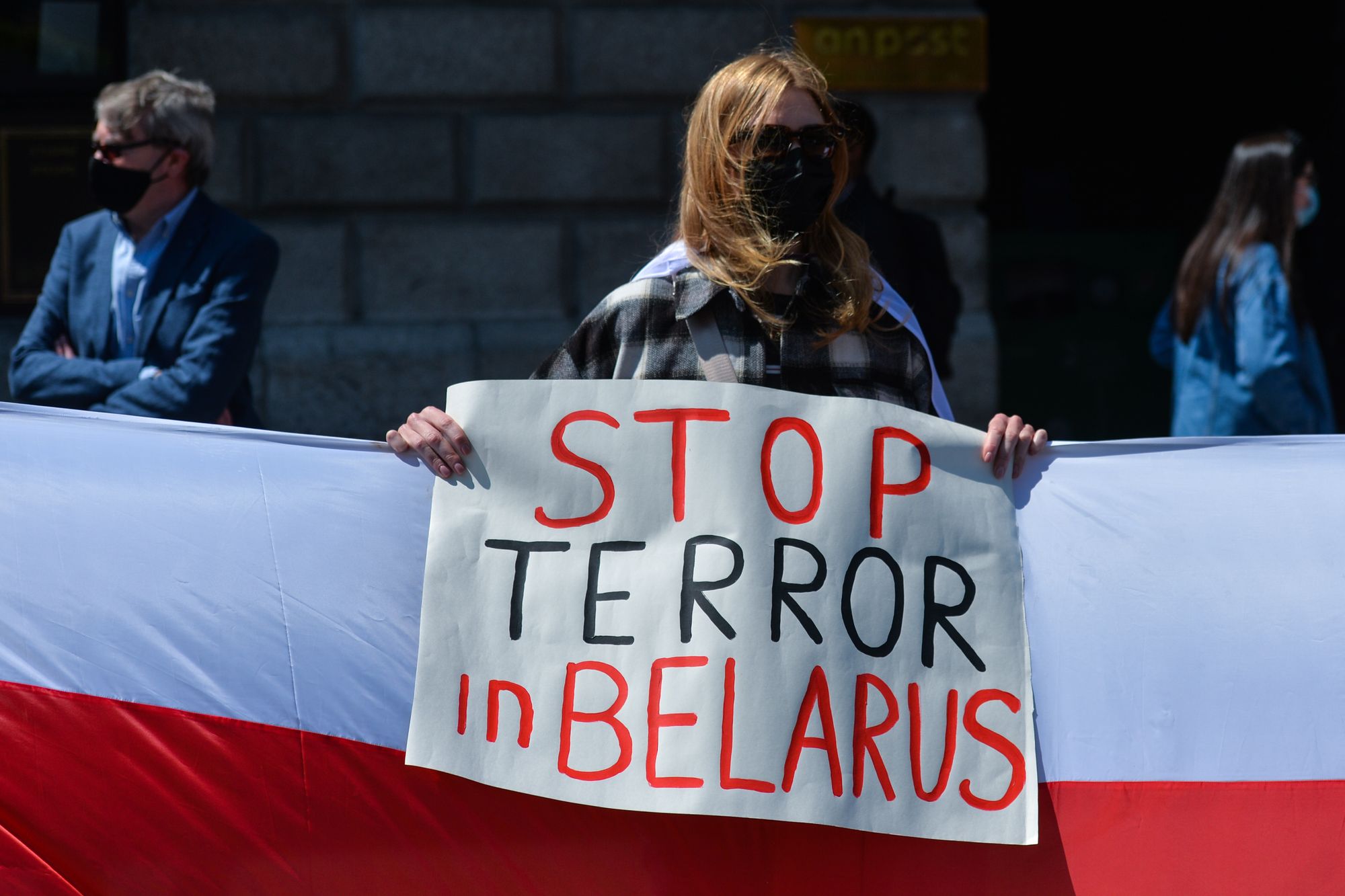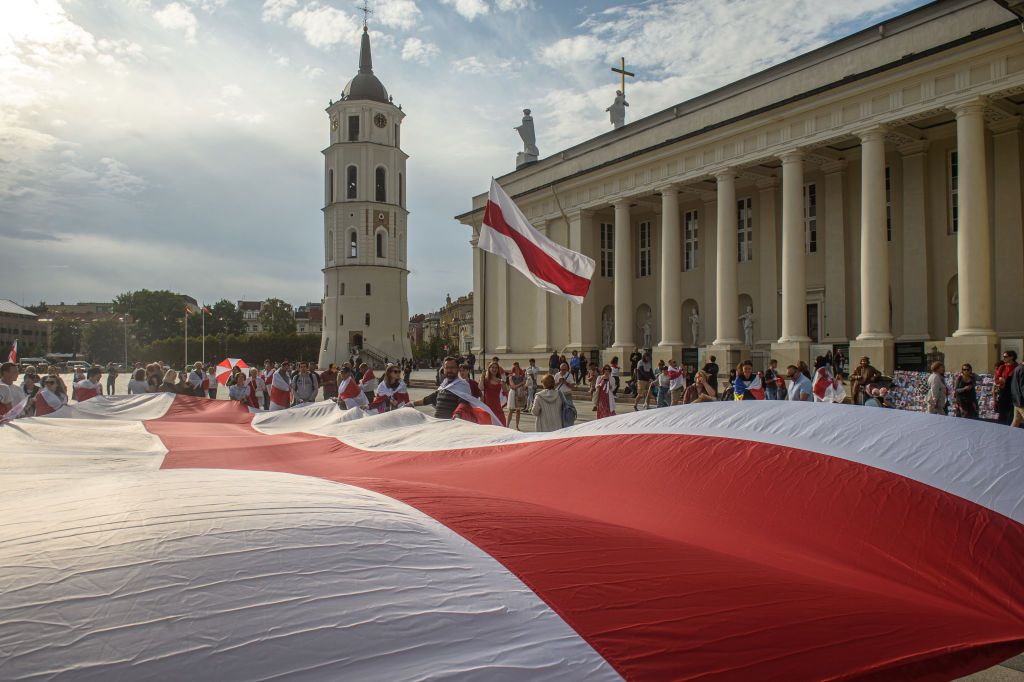Belarus Weekly: Warsaw calls for EU sanctions on Belarusian, Russian agricultural imports following Ukrainian investigation

Warsaw calls for EU sanctions on Belarusian and Russian agricultural imports following Ukrainian investigation revealing multimillion-dollar trade between Poland and authoritarian neighbors.
Belarus hits rock bottom in the annual Freedom in the World report, ranking it as the least free country in Europe and the 14th least free state in the world.
Parliamentary elections are over, but the crackdown on dissent continues as Belarusian KGB detains 12 lawyers, Viasna human rights organization reports.
Belarus opens criminal case on alleged "denial of Belarusian genocide." Critics decry the propagandization of history as the regime of Alexander Lukashenko clamps down on dissent.
Belarus launches in absentia proceedings against Viasna human rights activist and ex-political prisoner Leanid Sudalenka, accusing him of aiding extremist activities.
Polish PM calls for EU sanctions on Belarusian, Russian farm produce after press sheds light on country’s trade with authoritarian neighbors
As Polish farmers protested against Ukrainian agricultural imports and continued to block Poland’s border with Ukraine, Poland was conducting discrete trade with Belarus and Russia, importing millions worth of agricultural produce.
Following the revelation, Poland is seeking to ban Belarusian and Russian agricultural imports into the country, according to Polish Prime Minister Donald Tusk.
Speaking during his visit to neighboring Lithuania, which is considering similar restrictions, Tusk said EU member states should adopt a joint decision on sanctioning Belarusian and Russian agricultural imports.
Quoted by news website Euractiv, Tusk said the measure would ensure “the effective protection of the European and Polish agricultural and food markets.”
Lithuanian Prime Minister Ingrida Simonyte agreed that the proposal could help reduce Russian and Belarus’ opportunities to benefit from the European market, and noted that joint EU sanctions would ensure that the restrictions would not be circumvented.
A proposal to temporarily ban the import and transit of Belarusian and Russian agricultural products was submitted to the Lithuanian parliament earlier on March 4. If approved, the ban will take effect on April 15.
Earlier, Latvia became the first EU member to ban grain imports and other foodstuffs from Russia and Belarus. The ban comes into force in March.
According to an investigation by Ukrainska Pravda published on Feb. 29, Polish trucks ship Russian agricultural goods to Poland from Belarus, with the volume of these shipments increasing.
The story comes amid widespread protests in Poland against agricultural imports from Ukraine, a country currently facing a full-scale Russian invasion with Belarus' support.
"The border blockade by Polish farmers is senseless," Ukrainian Prime Minister Denys Shmyhal said on March 4.
According to Warsaw, the influx of cheaper Ukrainian products threatens the domestic production and livelihoods of Polish farmers, which Kyiv denies. Poland has already instituted a ban on several Ukrainian products, such as grain.
A ban on Russian agricultural exports to the EU was proposed as part of the Ukrainian government’s five-step plan, published on Feb. 23, to resolve the blockade problem.
Belarus ranks among least free countries
Belarus is not only the least-free European country, but is among the world’s 14 least free countries, along with Myanmar, Somalia, and Saudi Arabia, the annual Freedom in the World report reveals.
Belarus scored only eight points out of 100 on a set of political and civil rights indicators derived from the Universal Declaration of Human Rights. Myanmar under a military junta, Somalia entrenched in a civil war, and the absolute monarchy of Saudi Arabia received the same score.
After short-live improvement between 2015 and 2020, Belarus dropped dramatically in the freedom rankings when Belarusian dictator Lukashenko cracked down on any dissent sparked by his reelection in a fraudulent presidential poll.
The researchers describe elections in Belarus as being openly rigged and civil liberties as severely restricted. And after Belarus supported the Russian full-scale invasion of Ukraine in 2022, its rating plummeted further.

Belarus lags behind all its neighbors. Lithuania, Latvia, and Poland enjoy the status of Free Countries, scoring from 89 to 80 points.
Ukraine’s rating dropped in 2022 due to the start of Russia’s full-scale war, which restricted certain freedoms. The country is considered partially free, scoring 49 points out of 100.
Authoritarian Russia, designated “Not Free” in the rating with 13 points, still scored five points above Belarus.
The new Freedom in the World report concludes that overall global freedom declined for the 18th consecutive year in 2023, succumbing to flawed elections and armed conflict.
The U.S. non-profit organization Freedom House has been preparing the Freedom in the World report annually for over 50 years. The report covers 195 countries and 15 territories, providing numerical ratings and supporting texts. It reports on the state of electoral processes, political pluralism and participation, the functioning of the government, freedom of expression and of belief, associational and organizational rights, the rule of law, and personal autonomy and individual rights.
Viasna: KGB detains 12 attorneys in Belarus
The Belarusian security agency the KGB conducted raids on at least 12 acting attorneys in Belarus, detaining some of them, Human Rights Center Viasna reported on Feb. 29.
The president of the Belarusian Association of Human Rights Advocates, Maria Kolesava-Hudzilina, confirmed the detentions, adding that some detainees had been released while others remained detained.
The reasons for the detentions remain unknown.
Since the start of the domestic political crisis in Belarus, which was sparked by fraudulent presidential elections in 2020, the regime of Belarusian dictator Alexander Lukashenko has been continuously cracking down on civil society and undermining the right to a defense in court.
Six attorneys defending high-profile activists, media representatives, and Lukashenko’s competitors in the 2020 presidential election are behind bars, and 134 lawyers have lost their licenses, according to “The Right to Defense” – a project monitoring repression of lawyers in Belarus.
Belarus opens criminal case on ‘denying genocide of Belarusians’
Belarusian law enforcers have opened a criminal case against a citizen based on a charge of “denial of the genocide of the Belarusian people” – which critics have decried as a politically motivated charge weaponizing Belarusian history for propaganda purposes.
The Belarusian Investigative Committee reported on March 3 that it had opened a criminal case against a 54-year-old Belarusian on charges of “denial of the genocide of the Belarusian people,” as well as insulting Belarusian dictator Alexander Lukashenko and “gross misconduct.”
According to the investigators, the accused administered a group on the Russian social media platform Odnoklassniki, where he repeatedly posted “protest materials” and “information discrediting the republic and rehabilitating fascists.”
Belarusian media managed to identify the accused as Andrei Savitskiy, who lives in Minsk and was active on social media, amassing 3,500 followers online.
The case of “denial of genocide” is based on a blog post Savitskiy made on the victims of Khatyn, a village near Minsk that was burnt along with its inhabitants by invading Nazi forces in 1943 in response to a sabotage attack. Prosecutors allege that Savitskiy had blamed Belarusian partisans for causing the tragedy.
Belarus suffered severe losses during the Second World War, amounting to up to 2.2 million people or nearly a quarter of its population at the time. However, the Lukashenko regime has been accused of weaponizing this period of history, using it as a tool of propaganda to build an East-West divide narrative, and justify the dictator’s clinging to power.
Challenging the state’s interpretation of history is now punishable in Belarus by five years of imprisonment. The sentence can be doubled if the “crime” is repeated.
Human rights organization Human Constanta said that the law “consolidates the monopoly of the authoritarian (Lukashenko regime) on the interpretation of history, and gives the state an additional punitive instrument in the form of criminal punishment for expressing opinions different from the ‘only true’ state interpretation of history.”
The repressive law has already been used against exiled independent Belarusian media outlets Flagshtok and Zerkalo. On Jan. 23, 2024, similar charges were brought against RFE/RL journalist Siarhei Dubaviets.
However, Andrei Savitskiy’s case is likely to be the first to result in the courts handing down an actual prison term.
Viasna activist, ex-political prisoner faces new in absentia charges
The Belarusian Investigative Committee has launched in absentia proceedings against Leanid Sudalenka, a human rights activist working with the Viasna human rights organization. He is a former political prisoner who fled Belarus after serving a prison term.
The Investigative Committee announced the initiated proceedings on March 4. The committee accused the activist of “assisting extremist activities” – an offense punishable by up to six years of imprisonment.
The committee demanded that Sudalenka return to Belarus to participate in the proceedings, which he has refused to do, saying he fears more political repression.
“I am sure that Belarusian special services are trying to silence me this way because, after my release, I didn’t give up and didn’t keep silent. I spoke publicly at the European Parliament as a witness of torture in Belarusian prisons,” Sudalenka said in comment to Viasna.
The Viasna Human Rights Center also officially links the prosecution with Sudalenka’s human rights activism.
Sudalenka, a human rights activist for 20 years, headed Viasna’s Homiel branch. Belarusian law enforcers detained him on Jan. 18, 2021, on charges of organizing “actions that grossly violate public order” – a charge frequently used against opponents of the regime.
Internationally recognized as a political prisoner, Sudalenka served his term in full, was released on July 21, 2023, and then left the country.















